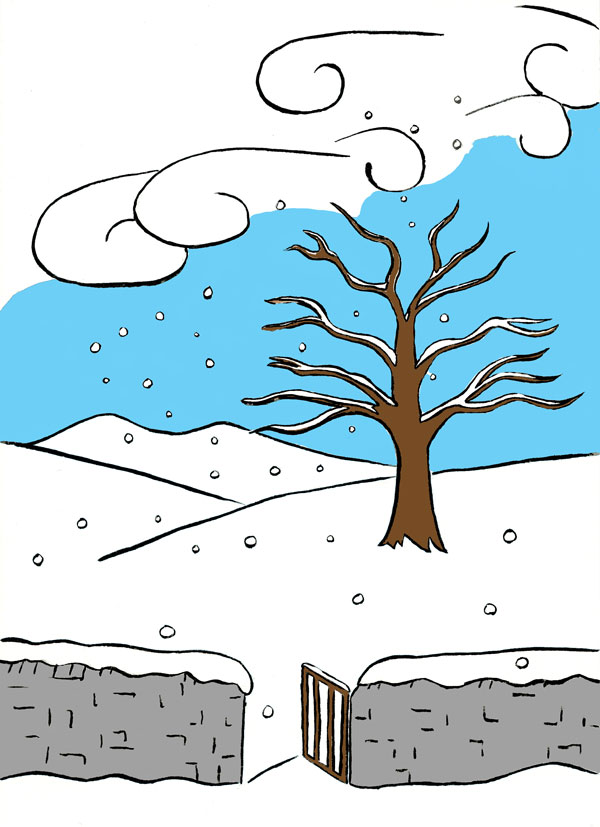 As I read The 99 Names of God, I find myself consistently drawn to al-Quddus—the Holy. As a dedicated student of religion and interfaith understanding, I am endlessly curious about how religious ideas can reflect, or allude to, larger human truths that transcend individual faith traditions. Holiness is one such idea. In Islam, al-Quddus represents the elements of God that are pure, awe-inspiring, worth striving for. This holiness is visualized as a blanket of fresh snow, one which returns the world to a state of beauty and peace and wholesomeness that reflects the best of life on Earth. In Judaism, we have a similar conception of holiness.
As I read The 99 Names of God, I find myself consistently drawn to al-Quddus—the Holy. As a dedicated student of religion and interfaith understanding, I am endlessly curious about how religious ideas can reflect, or allude to, larger human truths that transcend individual faith traditions. Holiness is one such idea. In Islam, al-Quddus represents the elements of God that are pure, awe-inspiring, worth striving for. This holiness is visualized as a blanket of fresh snow, one which returns the world to a state of beauty and peace and wholesomeness that reflects the best of life on Earth. In Judaism, we have a similar conception of holiness.
In Leviticus 18-19, God gives to the Israelites (through Moses) the Holiness Code. This code, called K’doshim, charges the Israelites to be a holy community in God’s image. To achieve this, they are instructed in all the various ways of living righteously—including, amongst other things, caring for the poor, respecting the disabled, and loving thy neighbor. Holiness is reflected in actions that create a peaceful, supportive, wholesome society in which all are cared for and treated with respect.
In both traditions, the holiness of God provides humanity something to strive for, an example of perfection that can never be achieved but must nonetheless be sought. Holiness represents the ideal way for human beings to interact, not just with God but also each other—with love, respect, and purity of intention.
There are many important differences between Judaism and Islam that should not be reduced or understated. However, in a very meaningful way, both groups are striving to honor and reflect al-Quddus, the holiness of God—and in doing so, prove they are worthy of God’s love and blessings. It is this connection with the divine that compels Muslims and Jews to act deliberately and with integrity, to form holy communities that lead each member in the direction of righteousness. This, to me, feels bigger than Islam and Judaism. This speaks to the human need to belong, and to belong to a community that offers support and encouragement to constantly strive for more (more understanding, more connection, more opportunities to do good, etc.).
I am deeply heartened and encouraged by this book, if for no other reason than it has offered me 99 new ways to seek out and grapple with these larger truths. It introduces a profoundly personal side of the Quran so rarely discussed in Western media, and in doing so allows anyone approaching the text with an open heart to find themselves in its pages. There is holiness in that, too.
~ Sofi Hersher is an active proponent for interfaith understanding and dialogue, currently working at the Religious Action Center of Reform Judaism in Washington, DC. She recently completed a Master’s thesis on the use of Twitter by interfaith practitioners in the UK.










